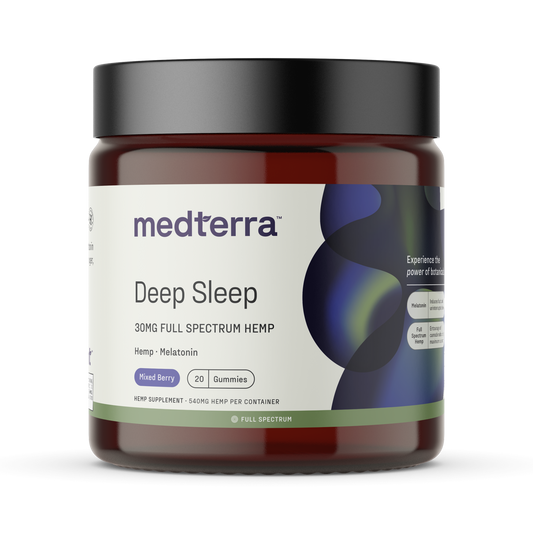CBD oil is incredibly versatile, as it can be consumed sublingually (under the tongue), added to drinks, or even baked into cookies and treats. Whatever method you choose to use your CBD oil, you can harness its beneficial effects to combat nerves, support your sleep cycles, and boost your overall health.
But with so many different products on the market, it can be difficult to figure out which CBD oil is right for you.
In this short guide, we’ll define and discuss three main types of CBD oil so that you can choose which one is right for you:
- CBD isolate oil
- Full-spectrum CBD oil
- Broad-spectrum CBD oil
CBD Isolate
CBD, short for cannabidiol, is one of the hemp plant’s most famous compounds. It’s known to support our health in myriad ways, from helping reduce post-exercise inflammation to supporting relaxation.
CBD isolate oil draws on this wisdom to deliver a product with just two compounds:
-
CBD isolate – Industrial extraction processes isolate CBD molecules from the other cannabinoids, terpenes, and flavonoids found in hemp, including THC.
-
Carrier oil – Due to the size of the fat molecules, hemp oil is less readily absorbed in the bloodstream than other oils. That’s why so many brands dilute CBD in carrier oils like MCT coconut oil.
CBD isolate oil does not contain THC or any of the other compounds naturally found in hemp plants.
Many people assume that CBD isolate is the best CBD oil on the market because it only contains CBD. But that’s not necessarily the case. Let’s explain.
Full-Spectrum CBD
Full-spectrum CBD oil contains the full array of naturally occurring compounds in the hemp plant. These include:
-
CBD and THC – Under the regulations laid out in the 2018 Farm Bill, all legal hemp and CBD products must contain less than 0.3% THC. At this low concentration, hemp products should not have psychoactive effects. However, trace amounts of THC can actually support CBD.
-
Minor cannabinoids – While CBN, CBC, and CBG are less famous and abundant than THC and CBD, they have their own potential benefits for mood, emotions, and health. There are over a hundred minor cannabinoids in the hemp plant.
-
Terpenes – Compounds like myrcene give the hemp plant its unique aroma. If you’ve ever used essential oils for aromatherapy, you know that plants’ unique scents can benefit your mood.
-
Flavonoids – These compounds are a part of plants’ immune systems, and may nourish ours, too.
Early evidence suggests that these compounds work better together via the “entourage effect.” Full-spectrum CBD oil harnesses the entourage effect, and some users find it delivers more potent results than CBD isolate.
Broad-Spectrum CBD
Broad-spectrum CBD oil contains most of the same terpenes, flavonoids, and cannabinoids as full-spectrum CBD oil, with one major exception—THC.
While CBD products should not contain much THC, some people prefer to avoid this substance altogether. In that case, broad-spectrum THC oil is a potential option.
While broad-spectrum CBD can still harness the entourage effect, it does so without any traces of THC.
Choosing the Right CBD Oil
Which of these three CBD oils is right for you?
-
If you’re only interested in trying CBD, go for CBD isolate. If you decide the effect isn’t as strong as you’d like, you can always try a full-spectrum or broad-spectrum product next time.
-
If you want to experience the full array of the hemp plant’s potential benefits, select a full-spectrum CBD oil.
-
If you want to experience the entourage effect without any traces of THC, try a broad-spectrum CBD oil.
No matter which oil you choose, make sure you research its source.
- Buy your CBD products from reliable companies that lab-test their products to ensure they’re free of heavy metals, pesticides, and other potentially harmful substances.
- Purchase oils that clearly state the amount of CBD per bottle and dropper. Otherwise, it’s incredibly difficult to figure out how much you’re consuming and adjust your dose accordingly.
- Look into the ratio of CBD to minor cannabinoids. Some products advertised as “full-spectrum” contain so little in cannabinoids, terpenes, and flavonoids that they’re closer to CBD isolate and fail to deliver the advertised entourage effect.
Getting Started
Once you’ve found the right CBD oil, experiment to find the perfect dose for your desired effects.
Start with a single dropper full and gradually increase the frequency of your doses over time. If you want a stronger effect, look into full-spectrum oils with a higher concentration of CBD.
Sources:













